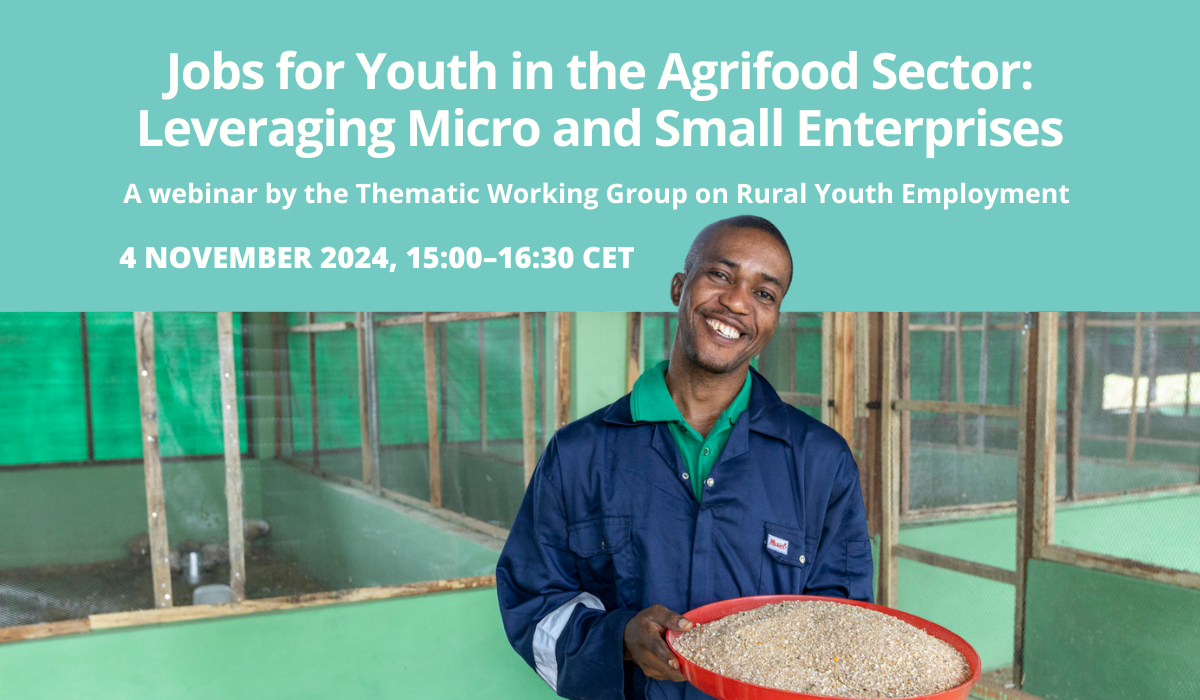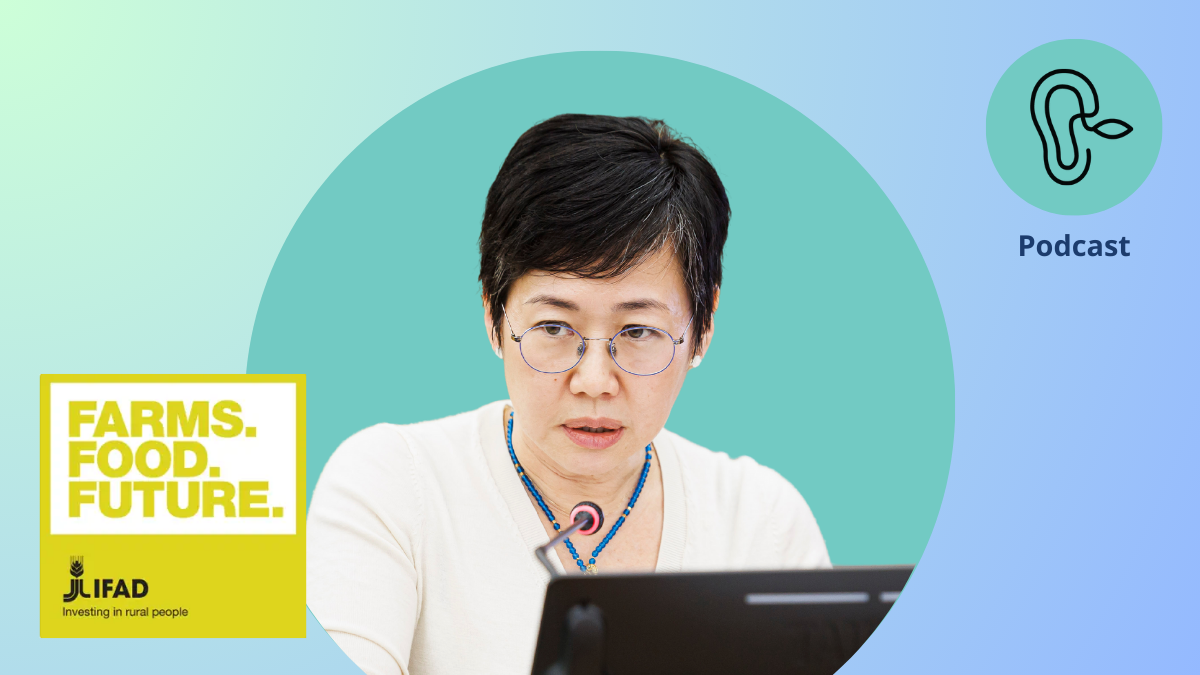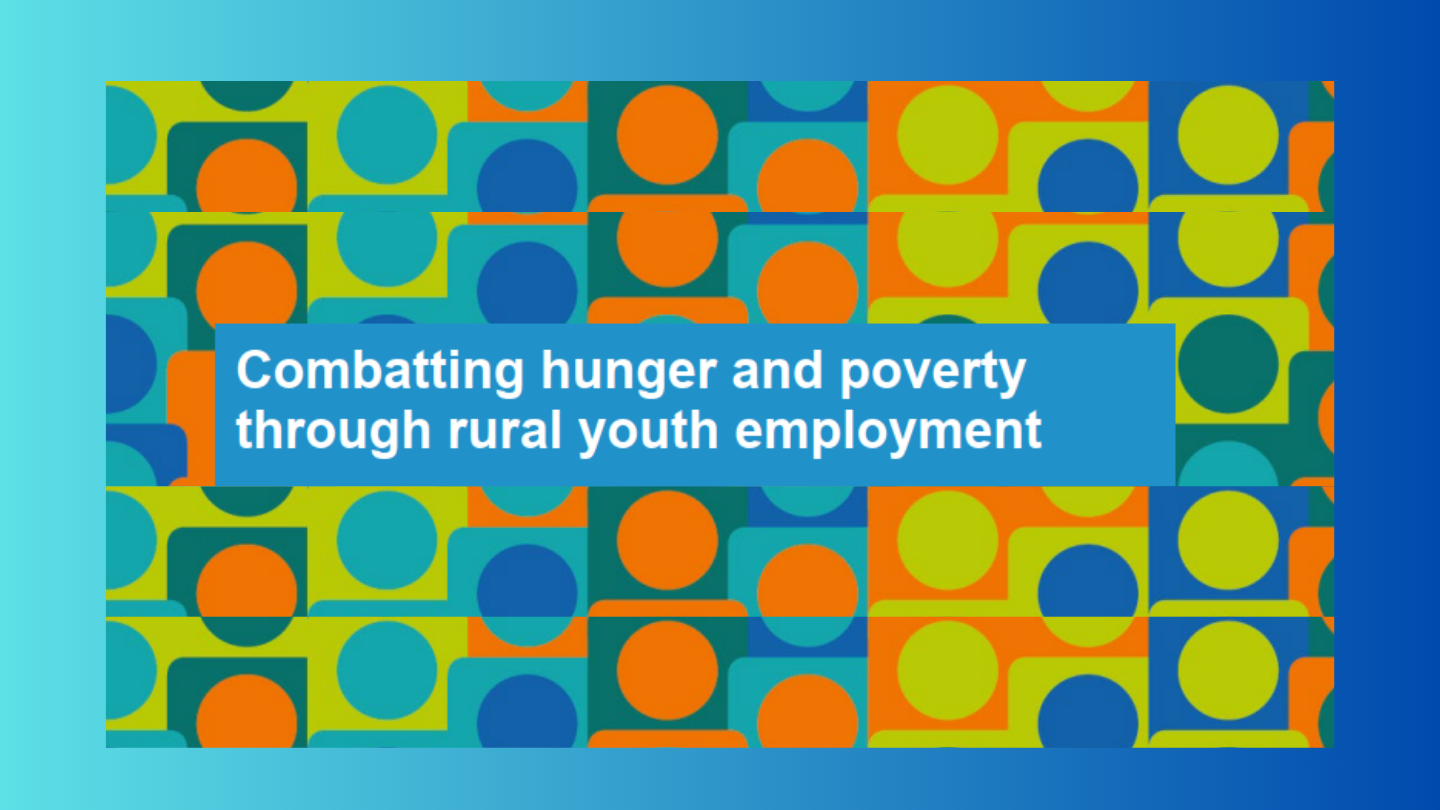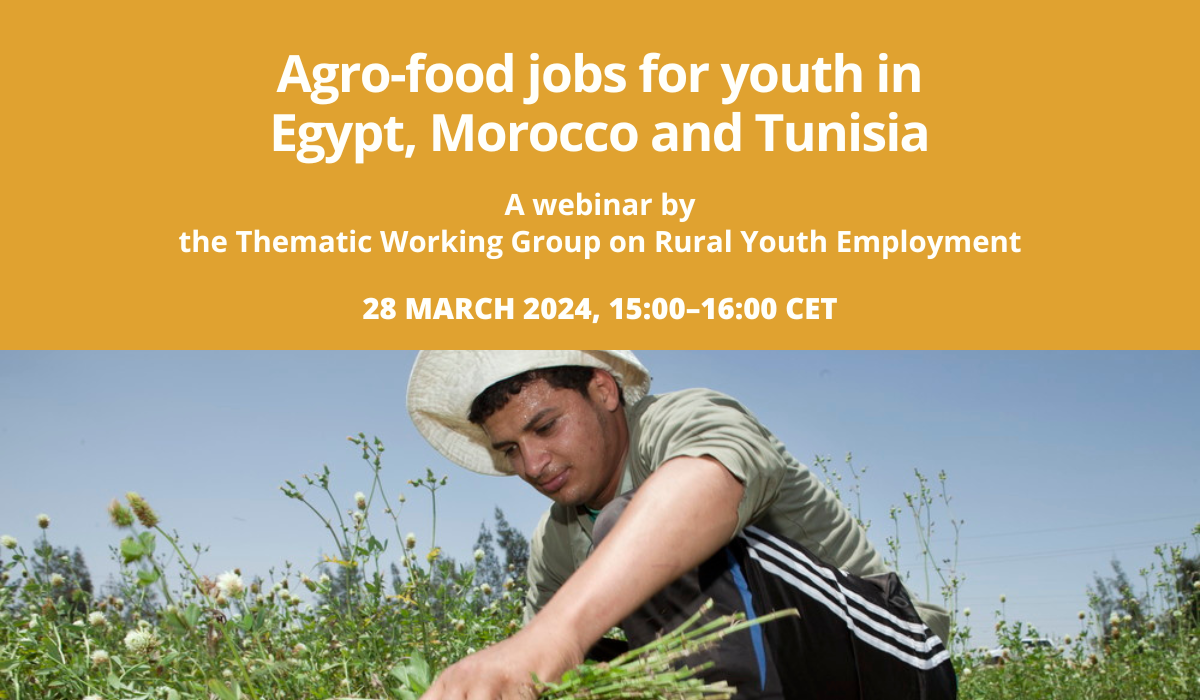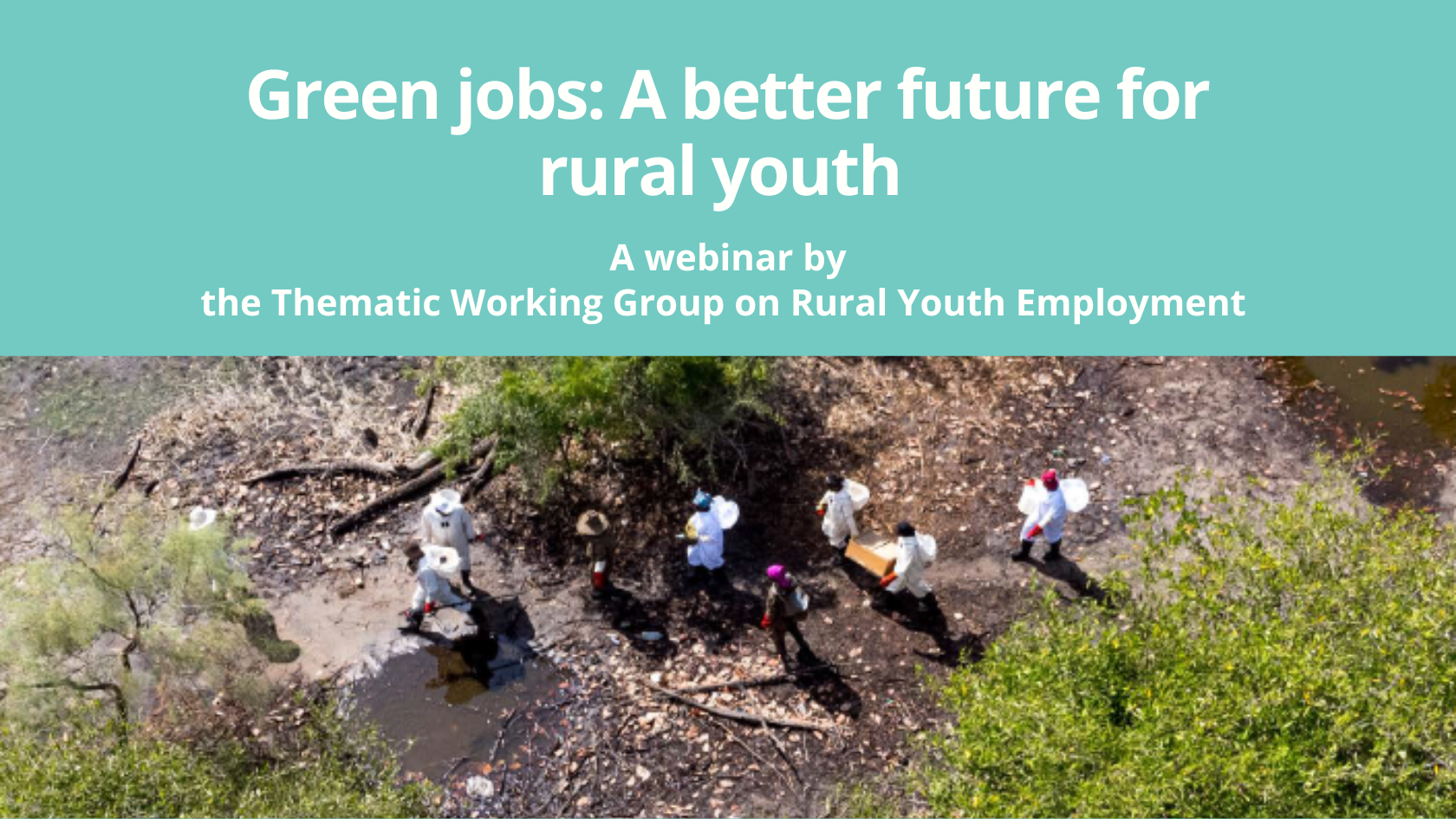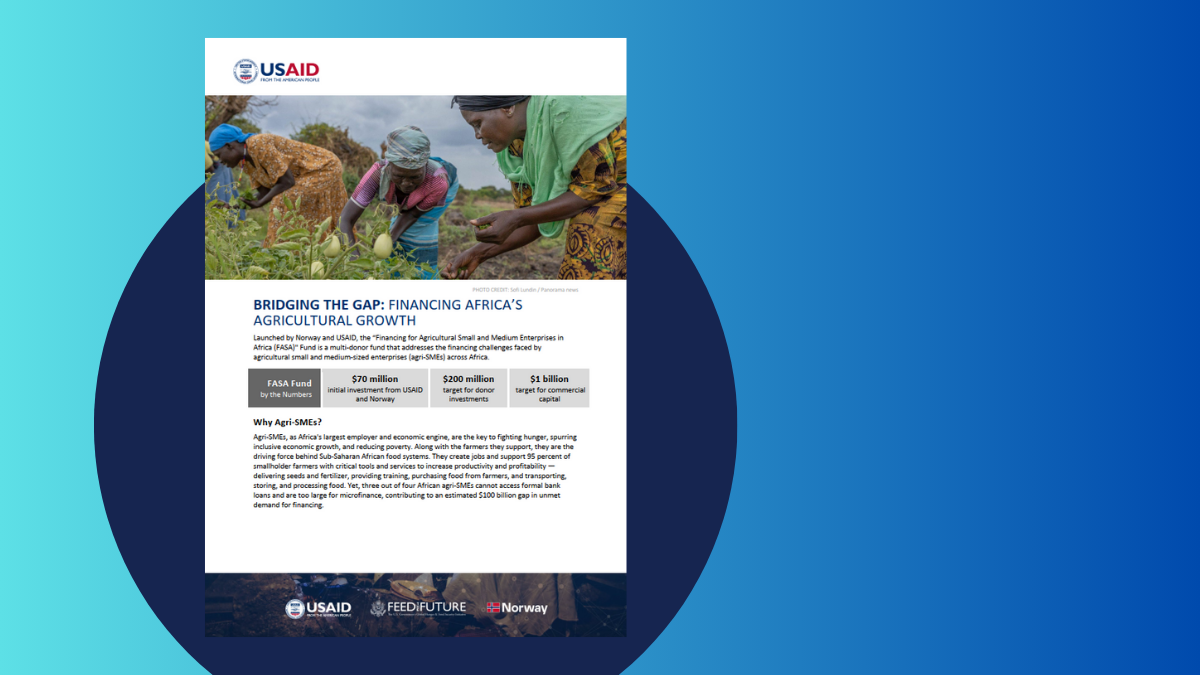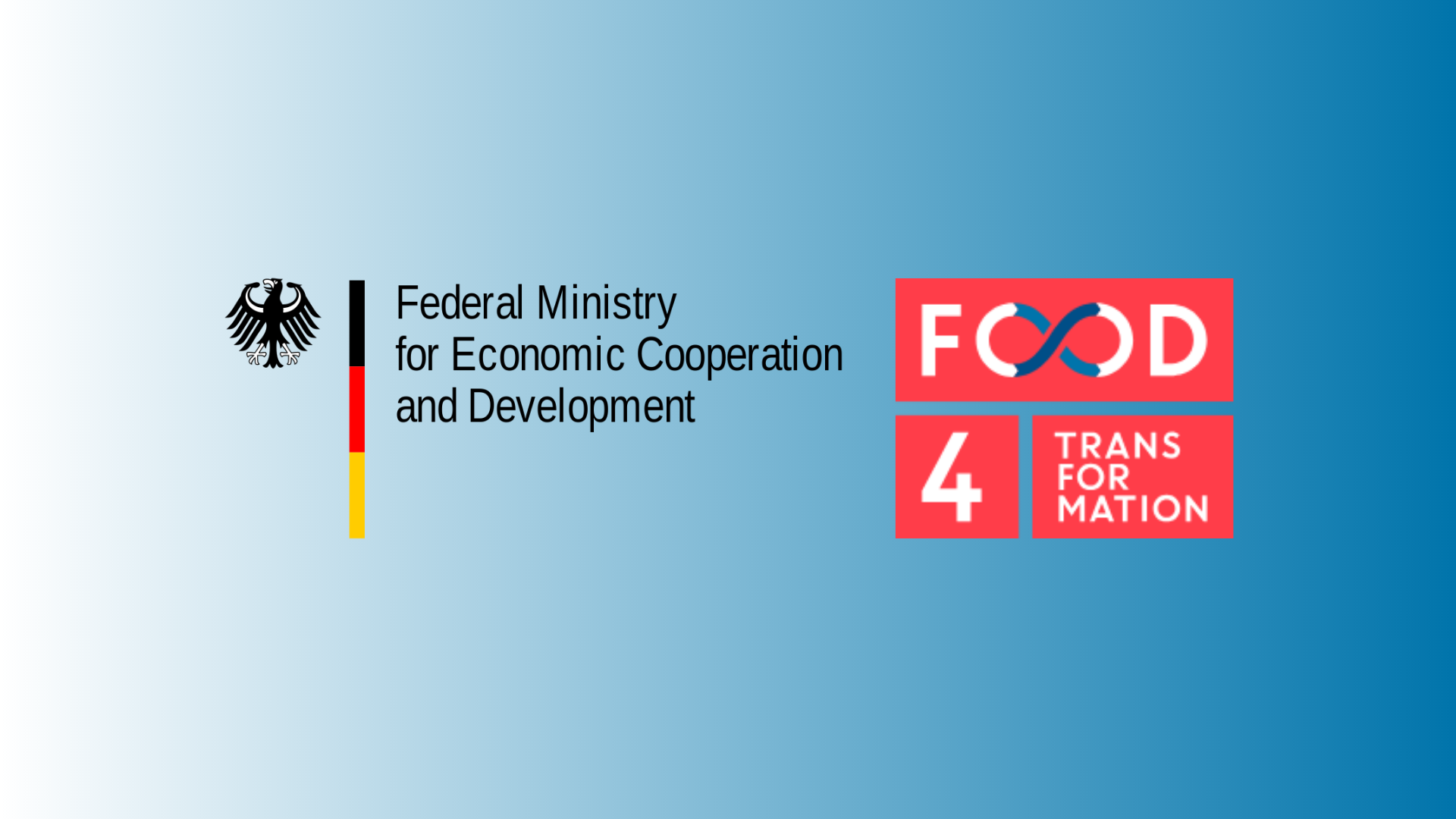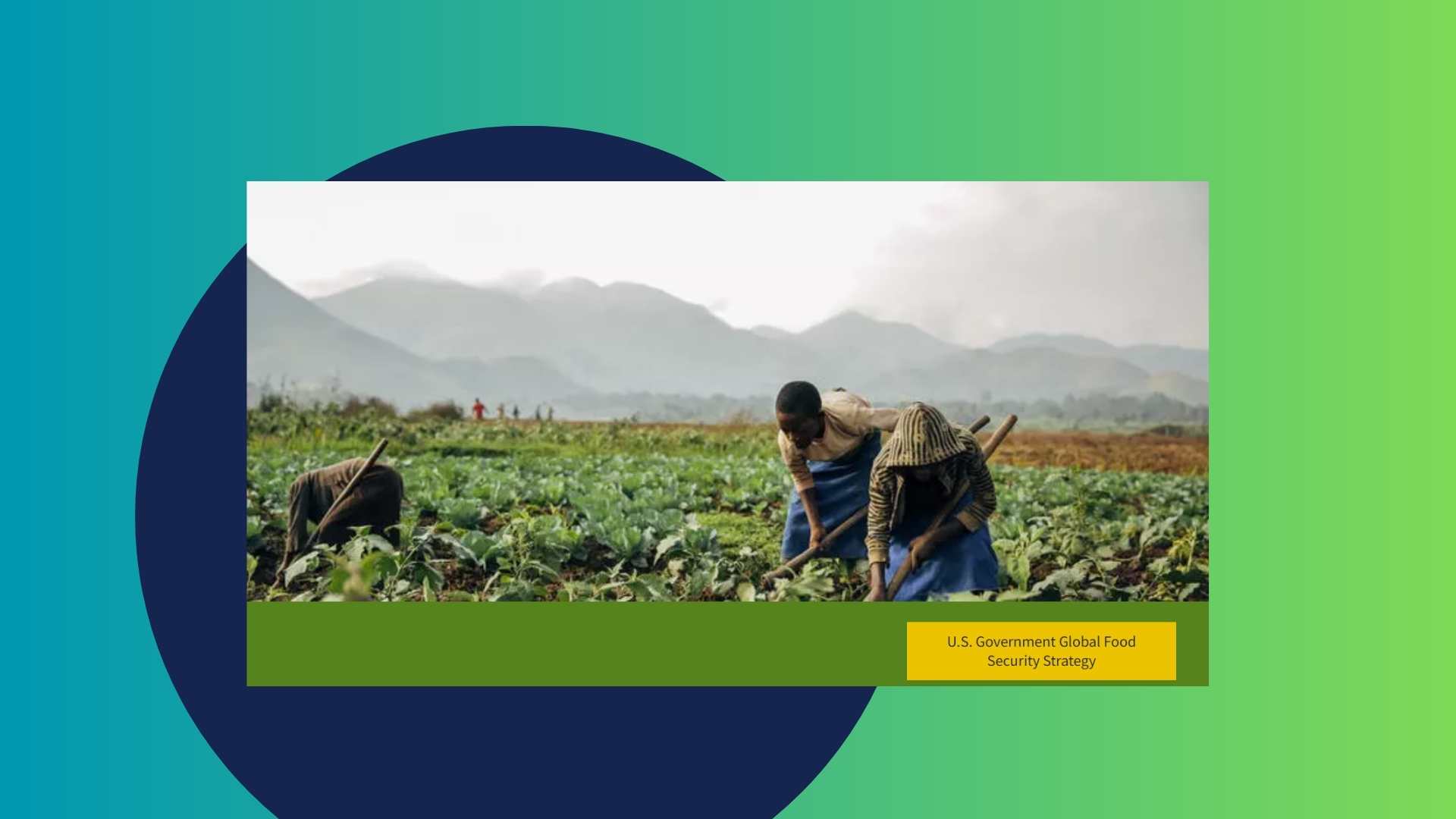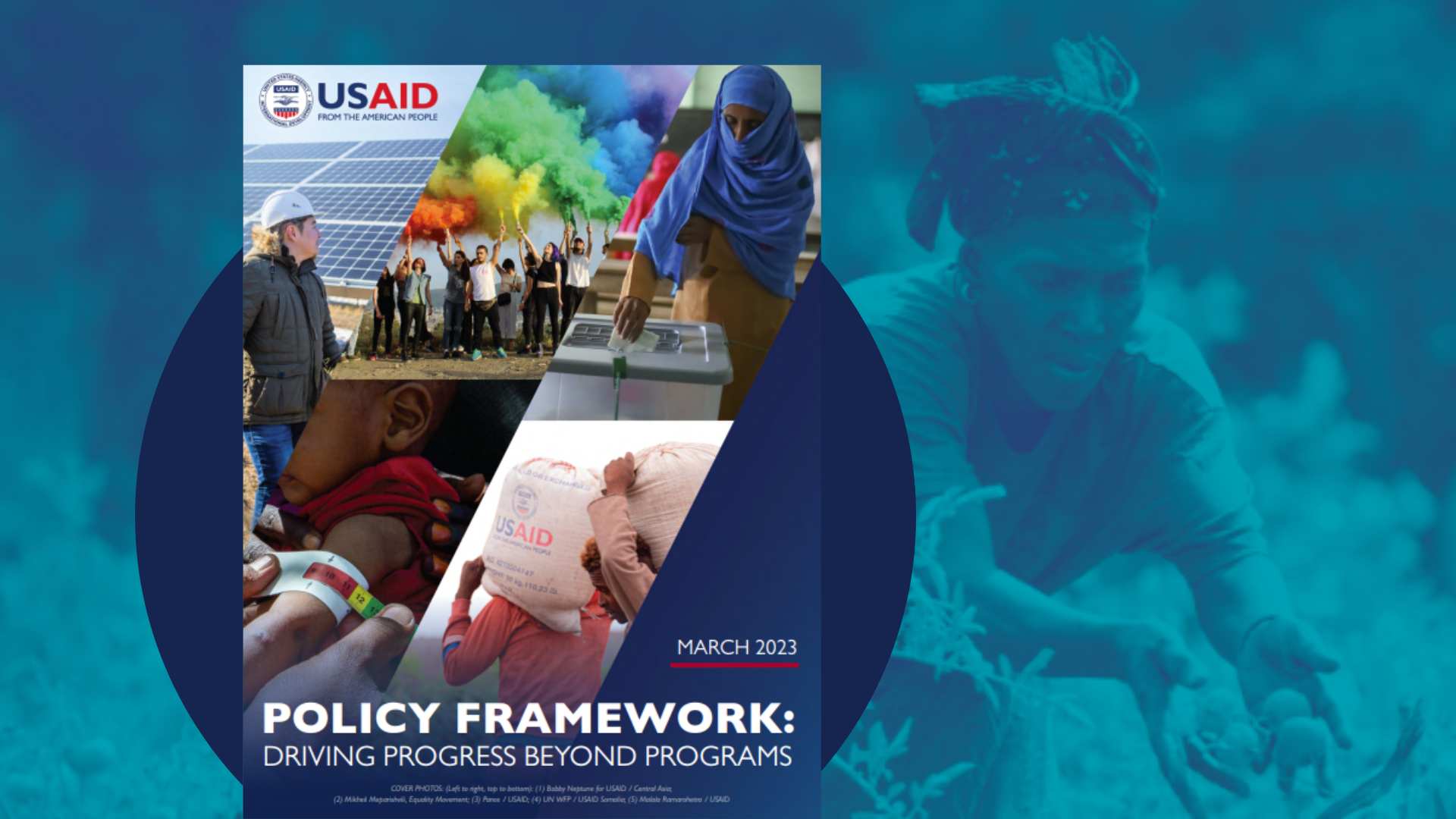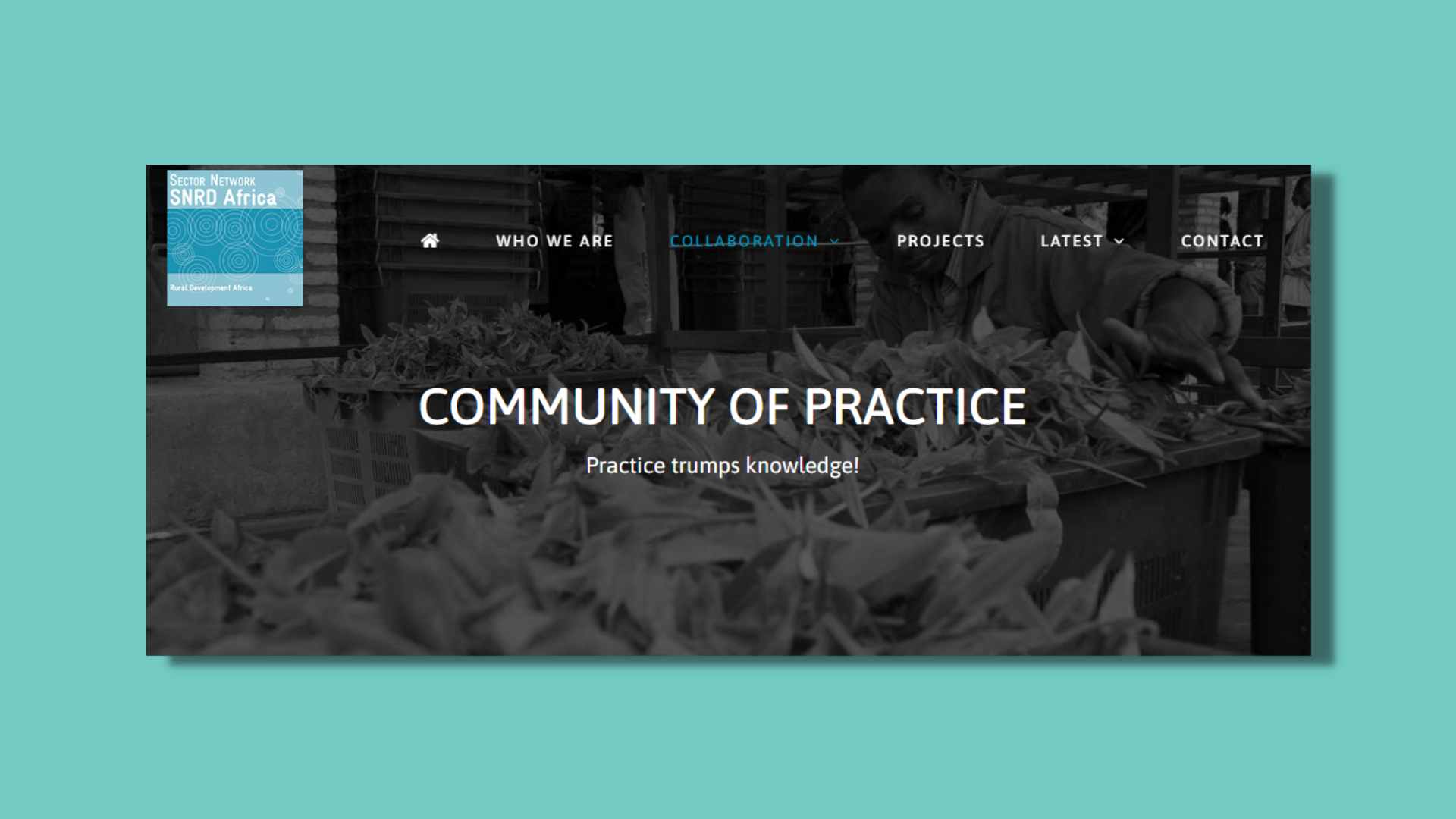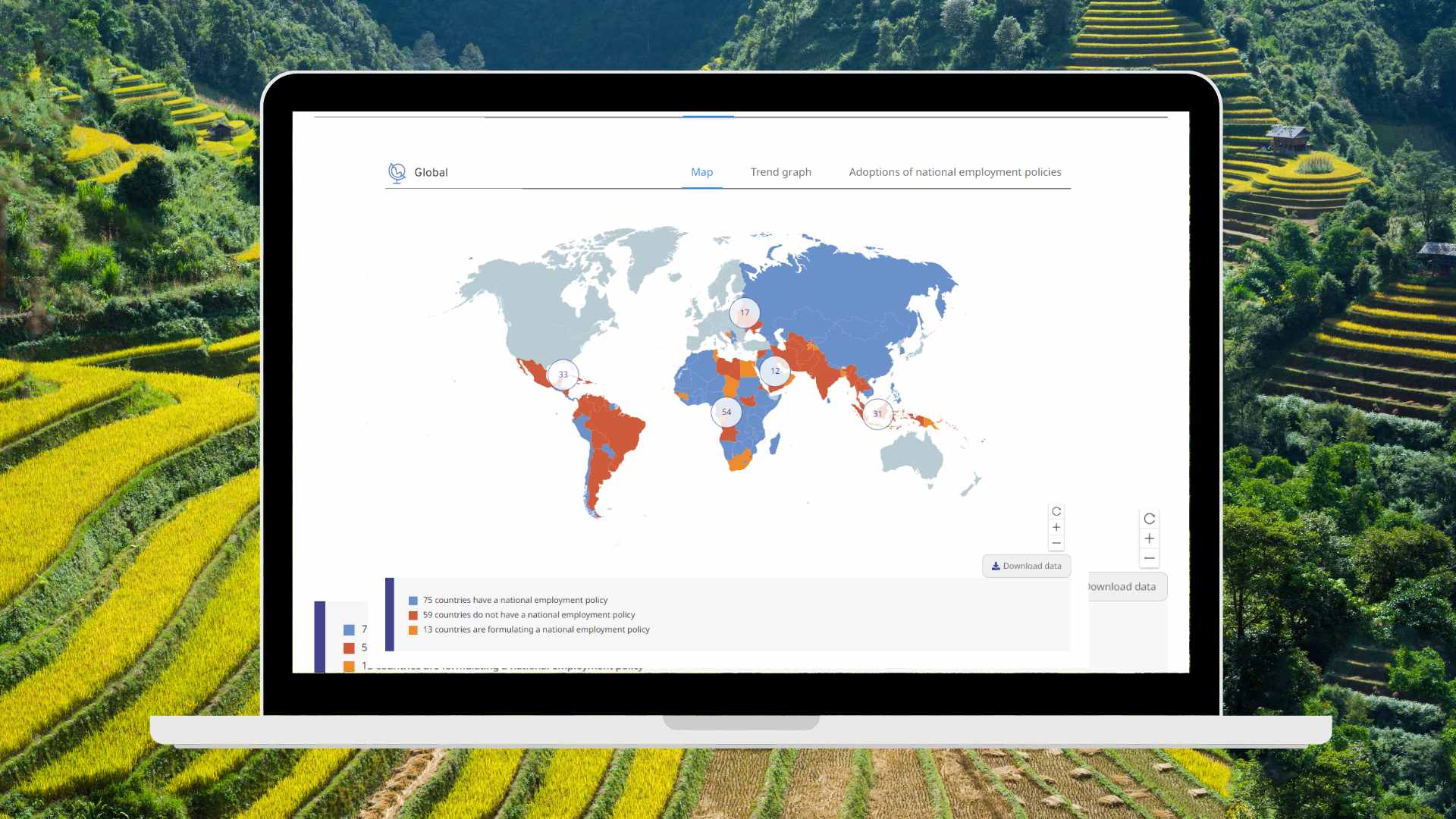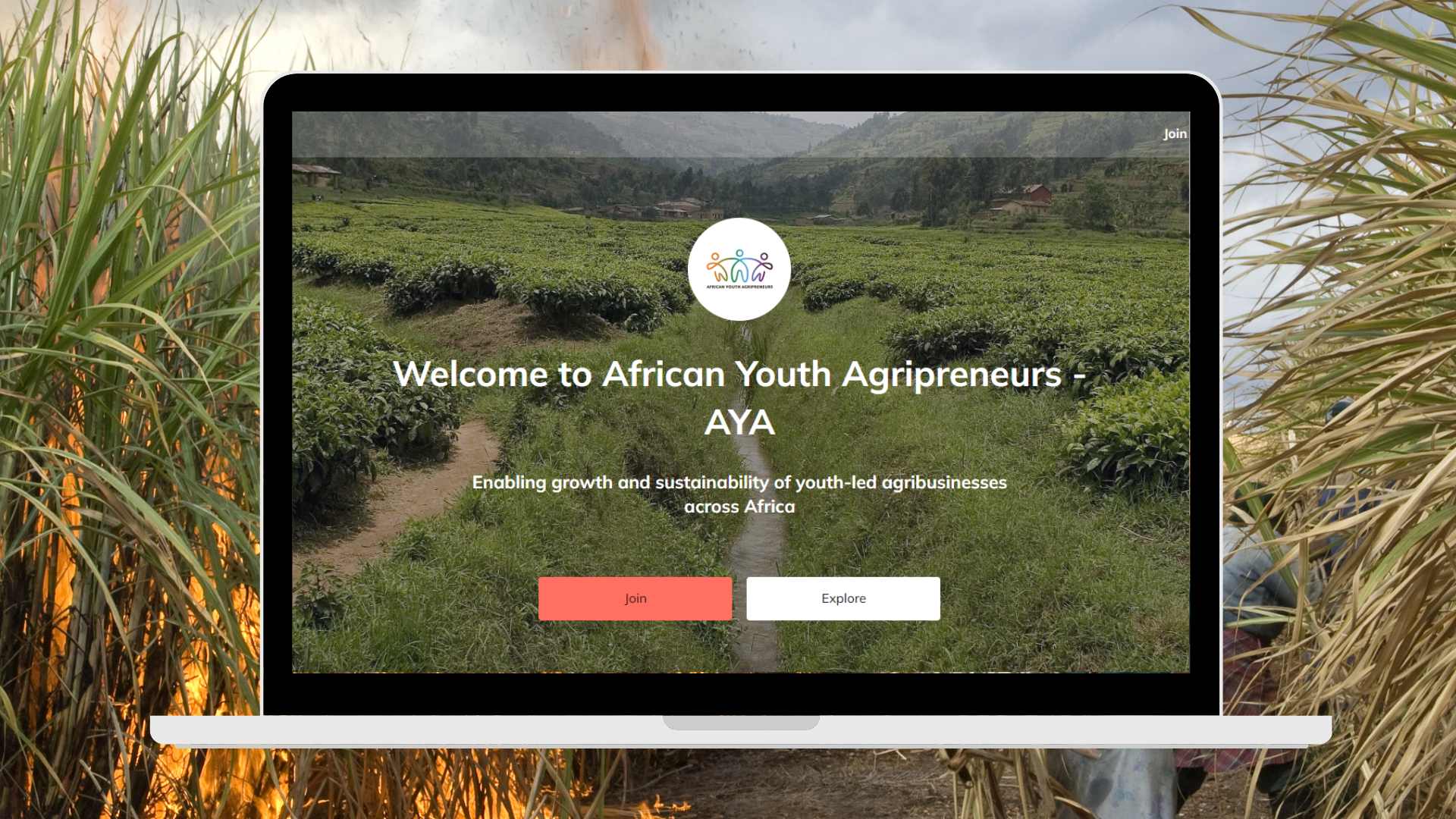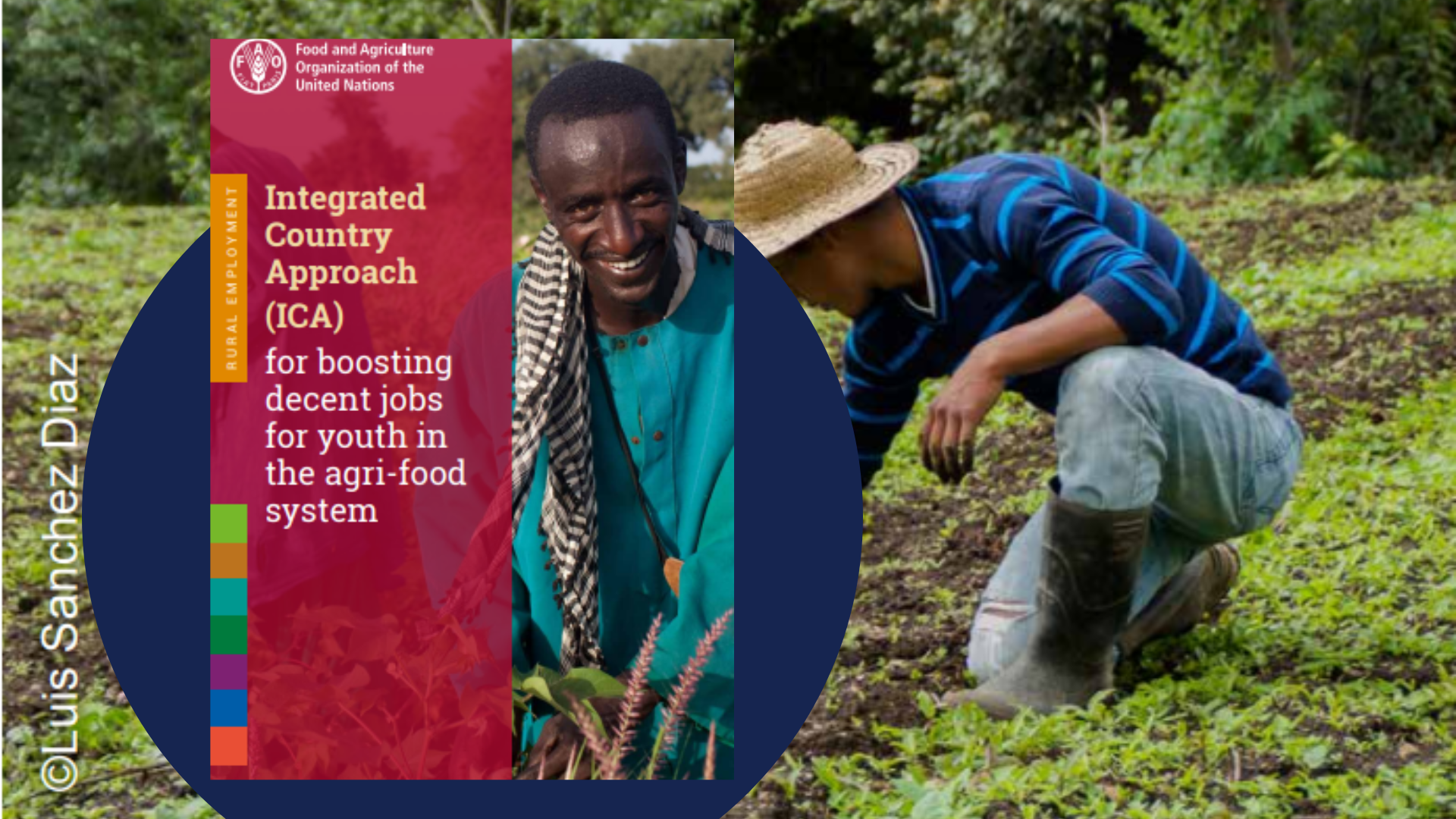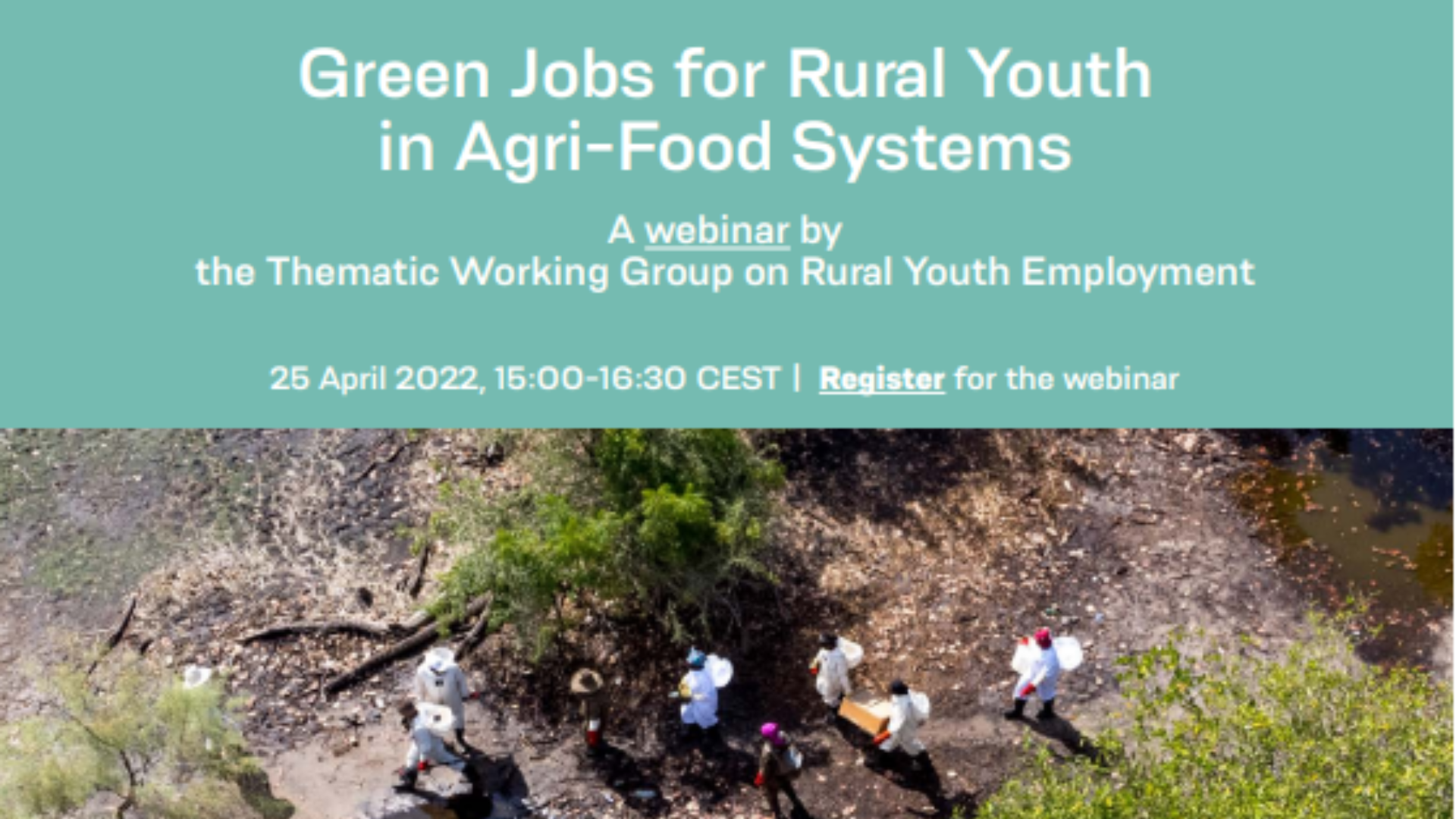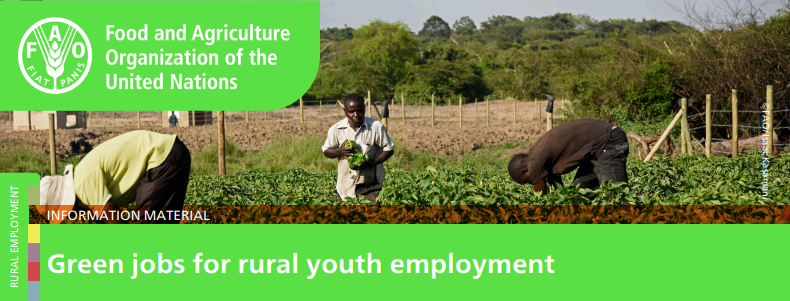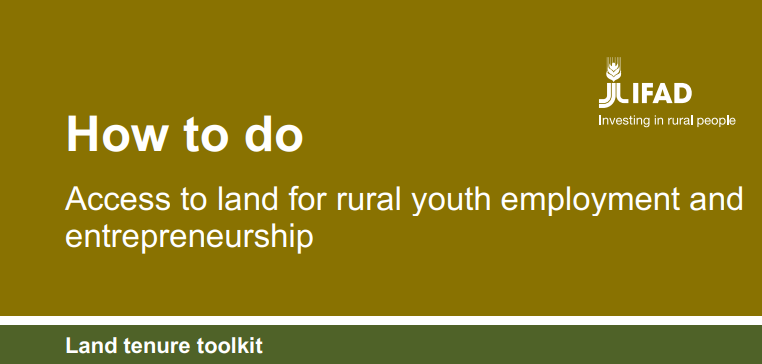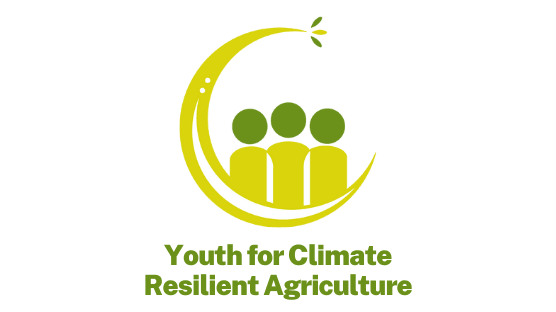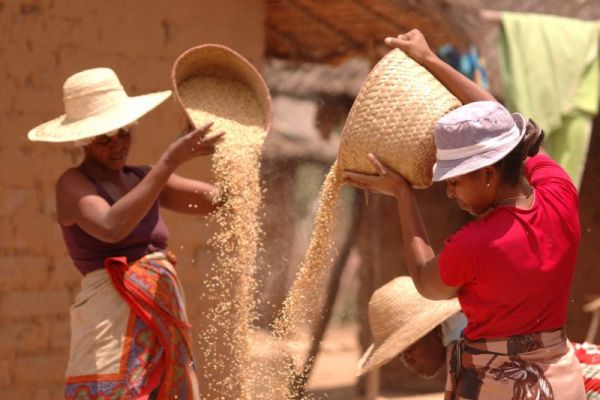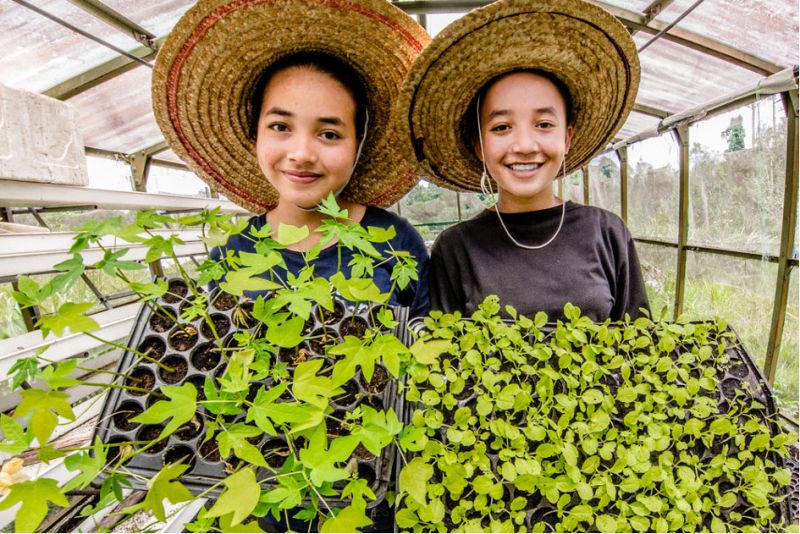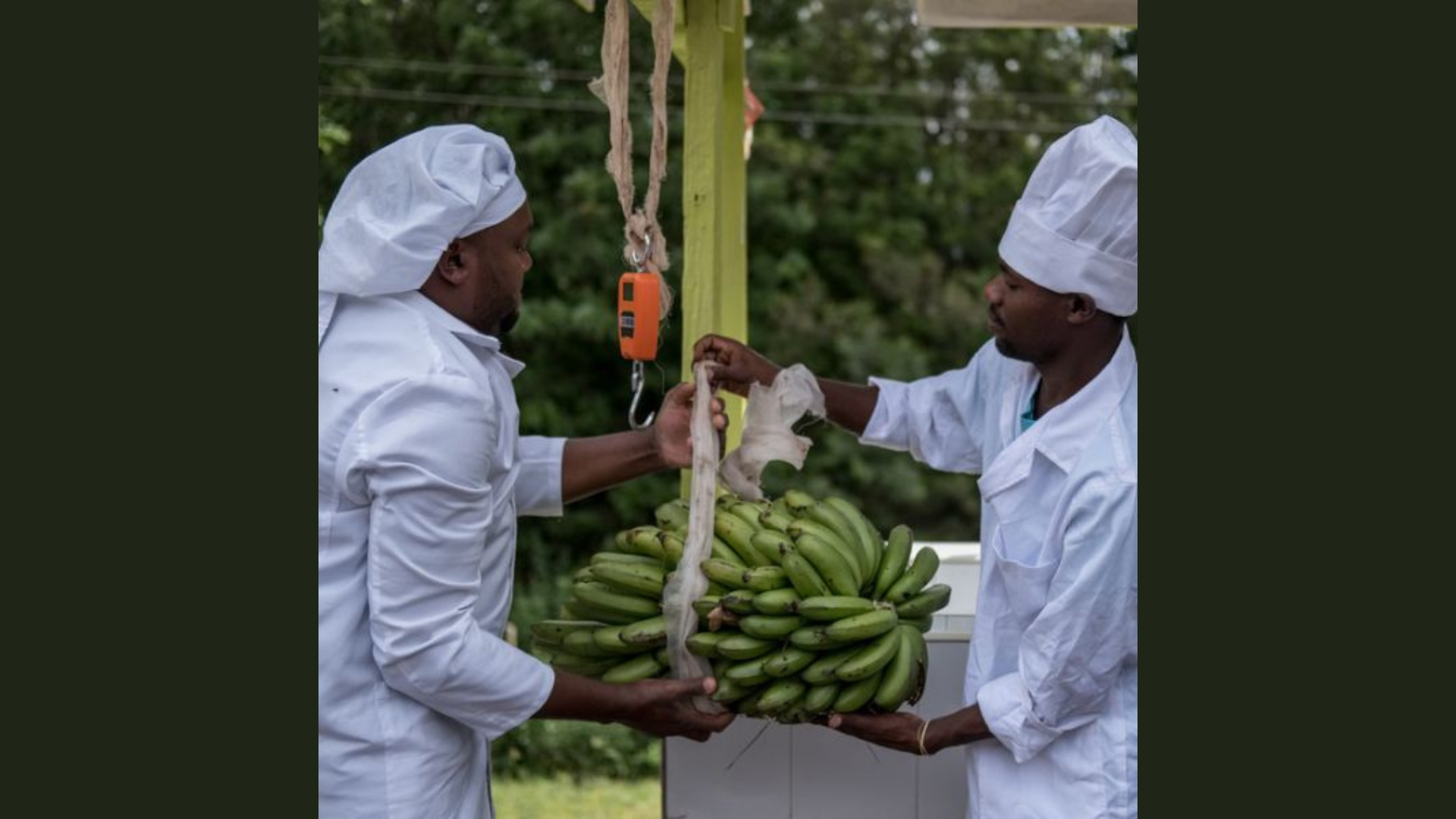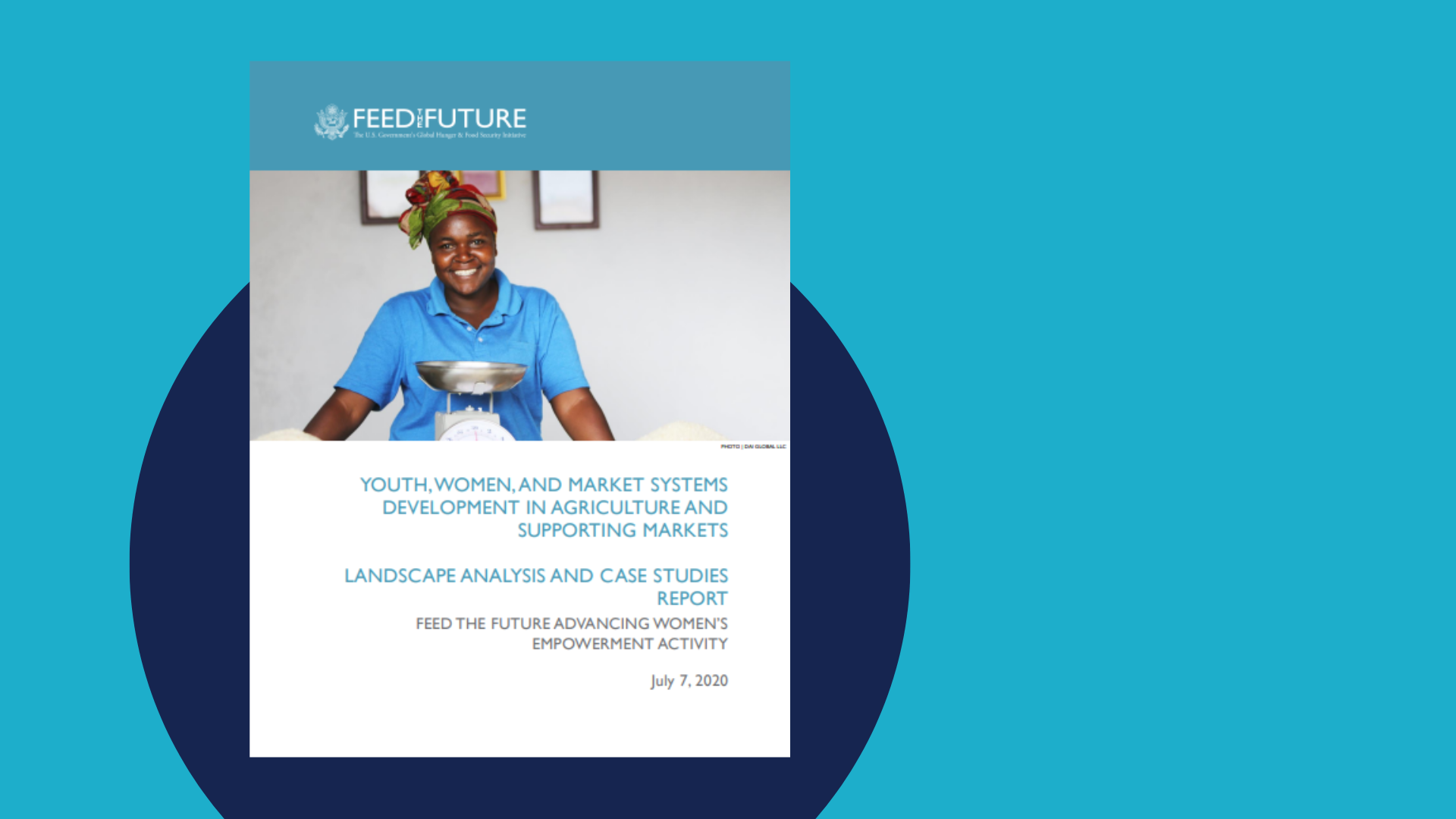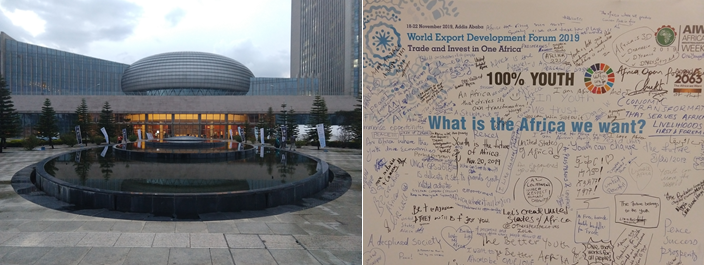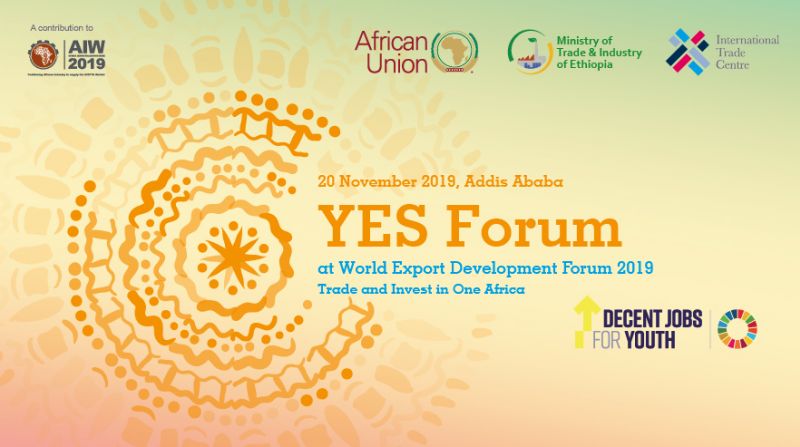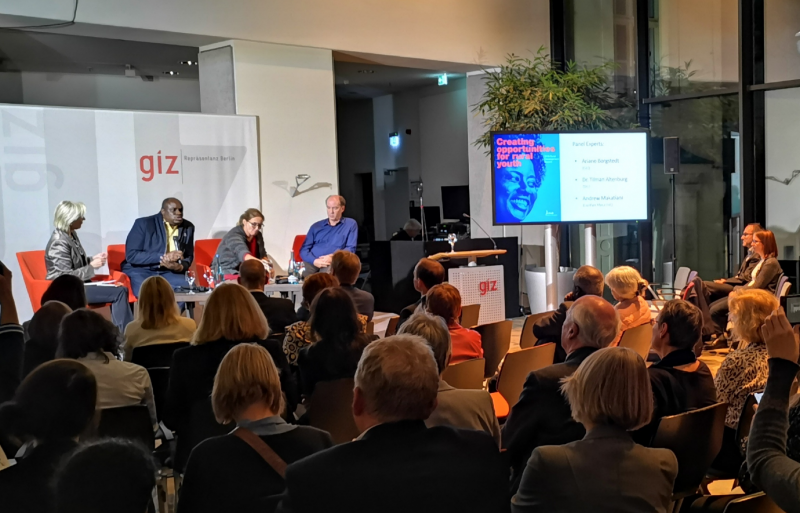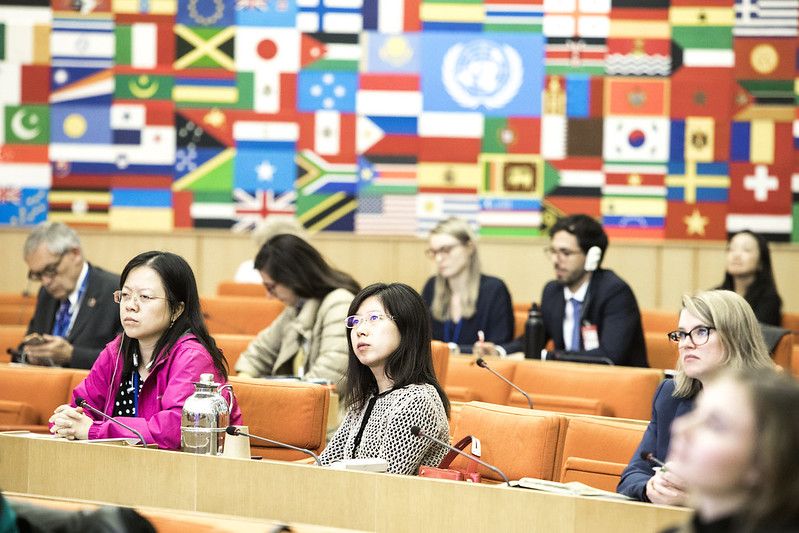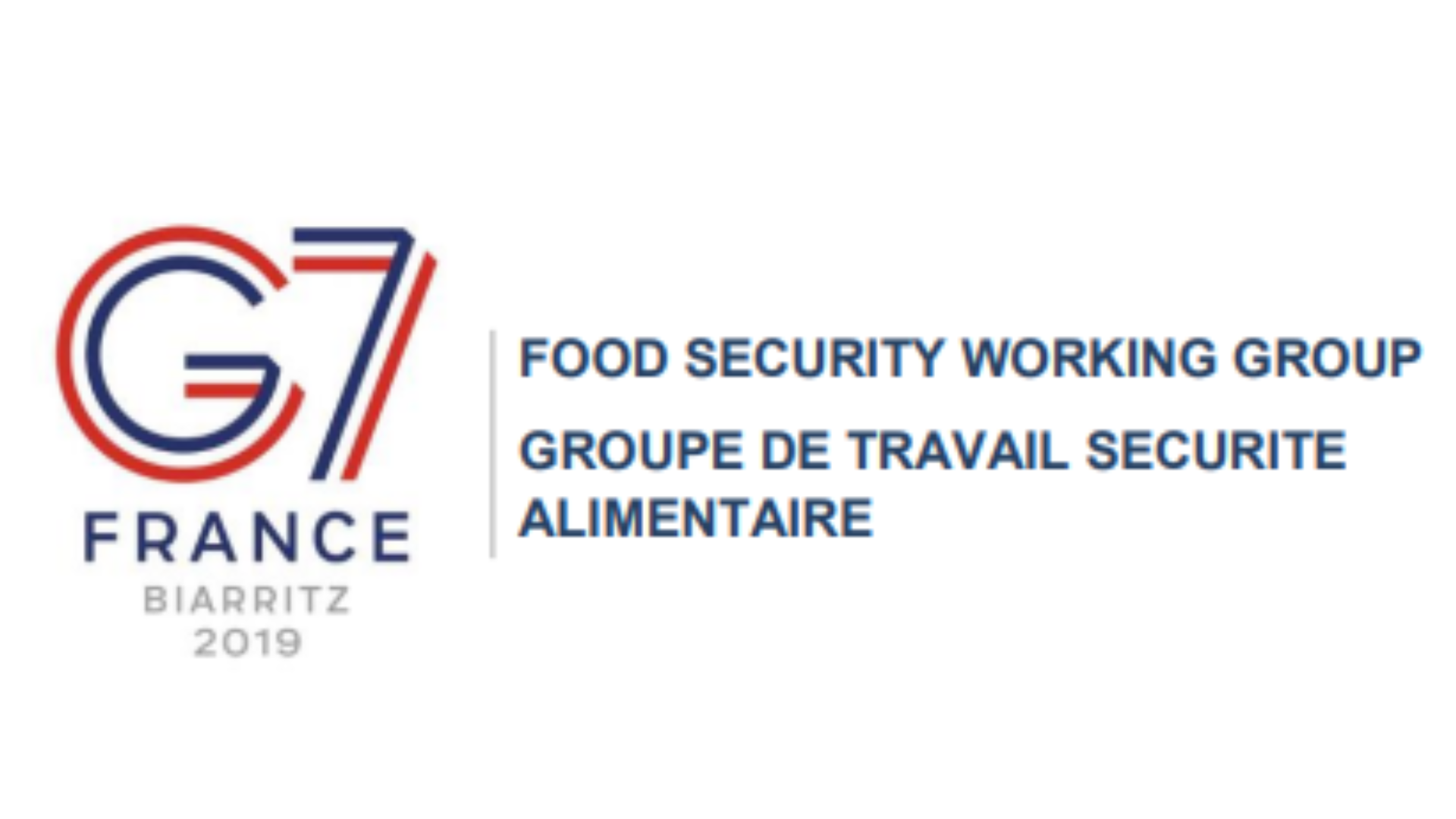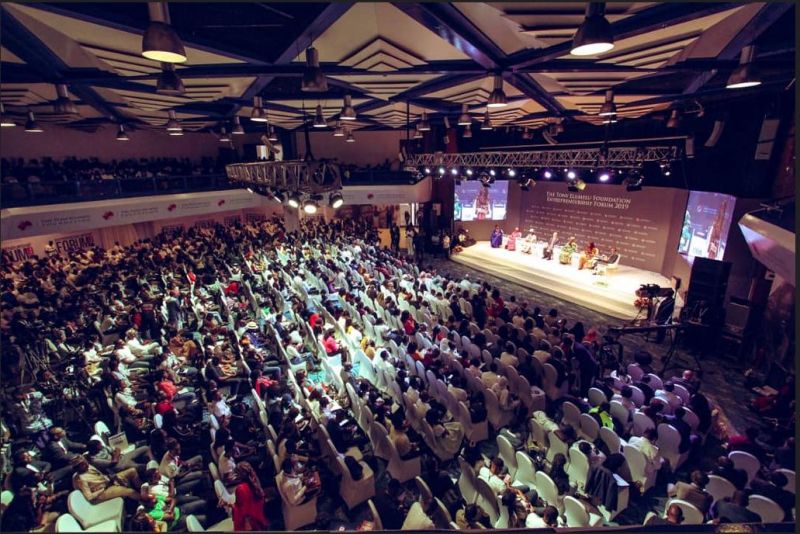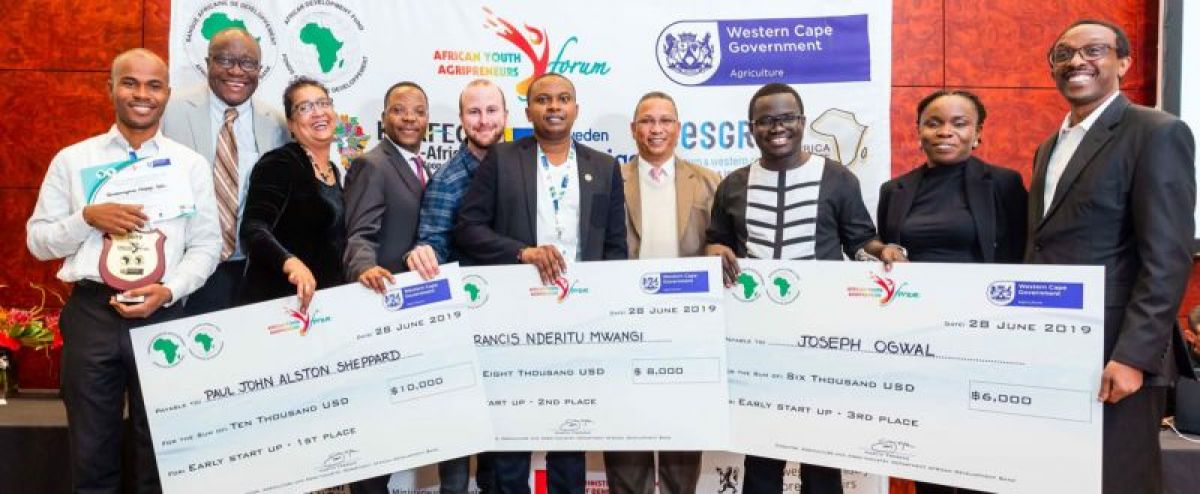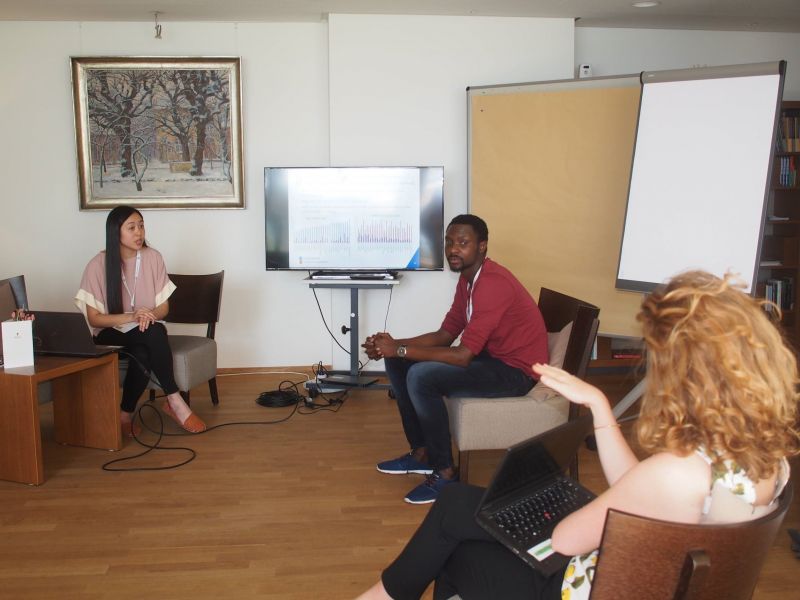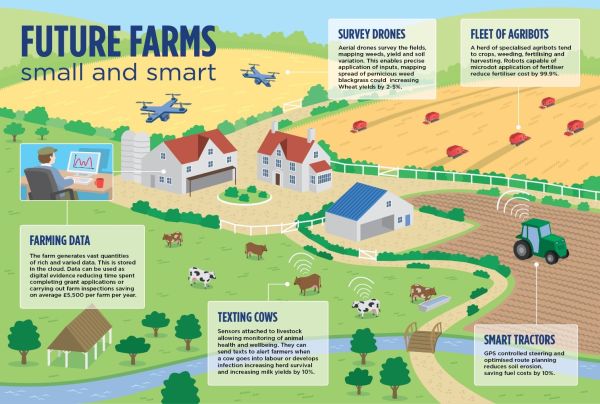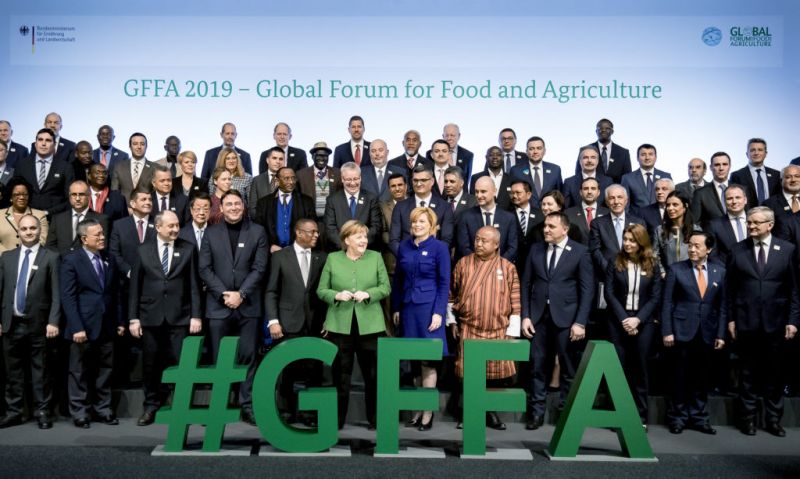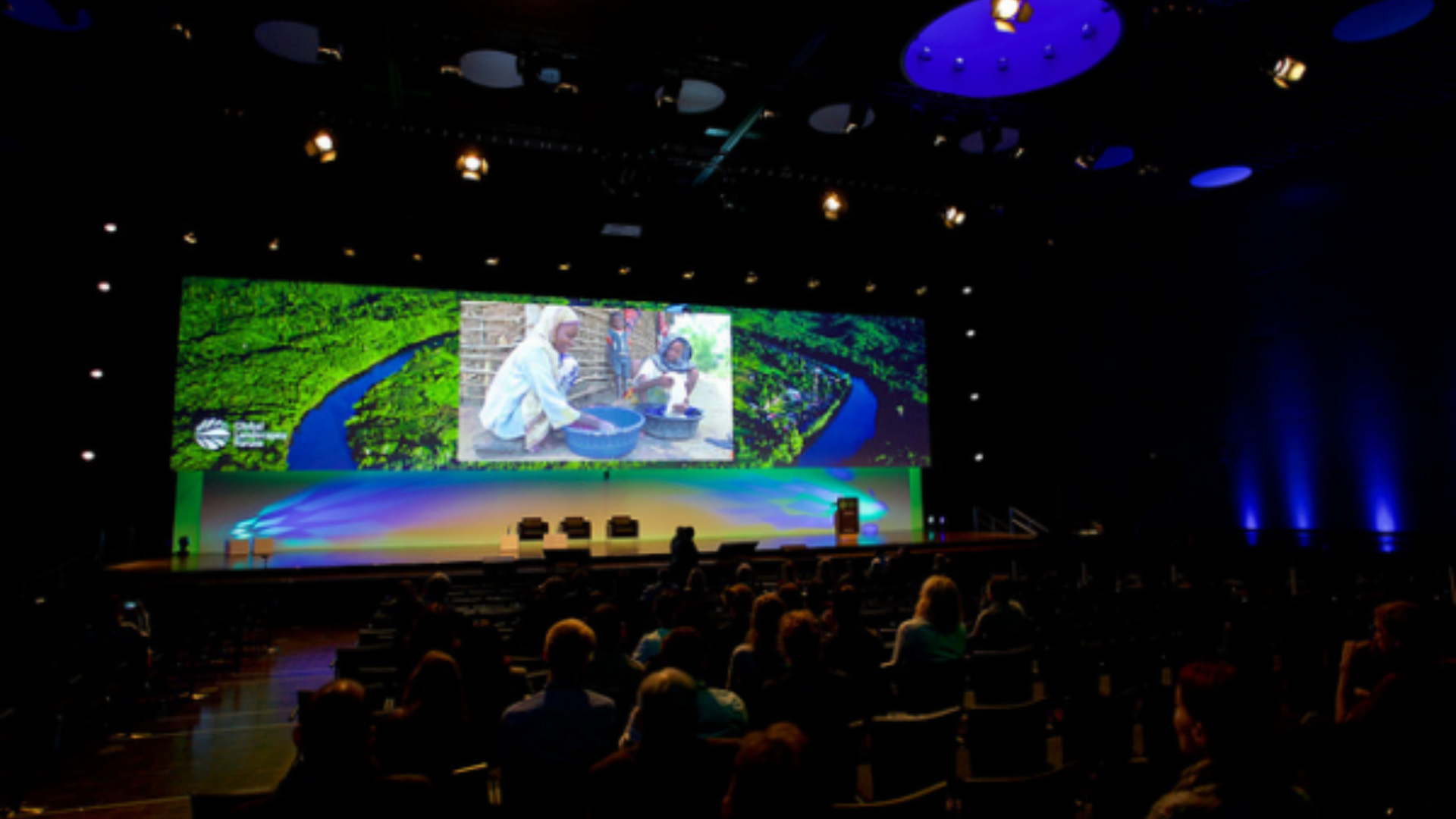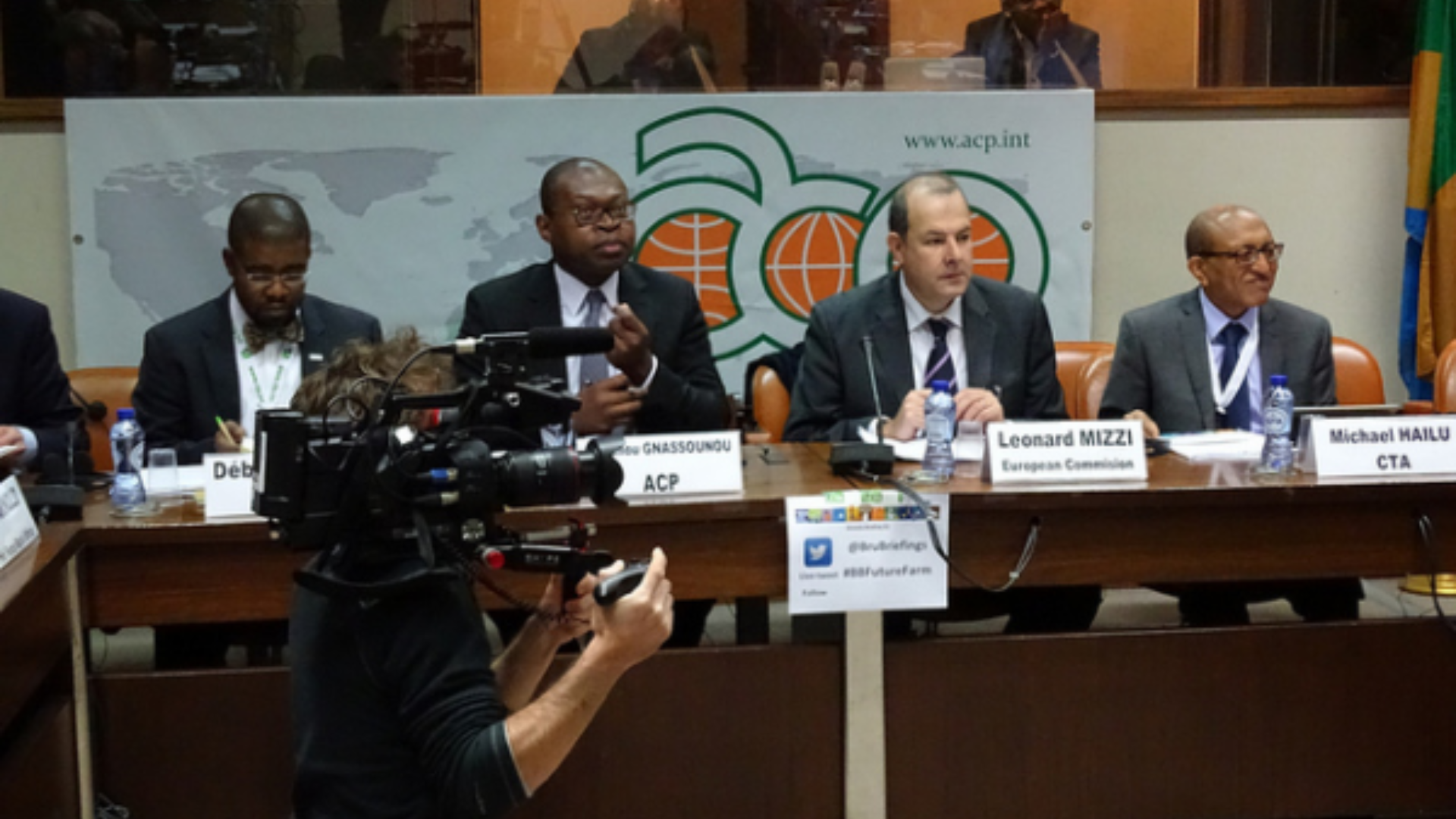The Thematic Working Group of Rural Youth Employment member GIZ (Global Project on Rural Employment with a Focus on Youth) in partnership with the German Ministry for Economic Cooperation and Development (BMZ), organized a session on “Youth Employment and Entrepreneurship in Sustainable Agri-Food System Transformation in Africa” as a side event to the 7th EU-Africa Business Forum (EABF22) on February 15th 2022.
Links
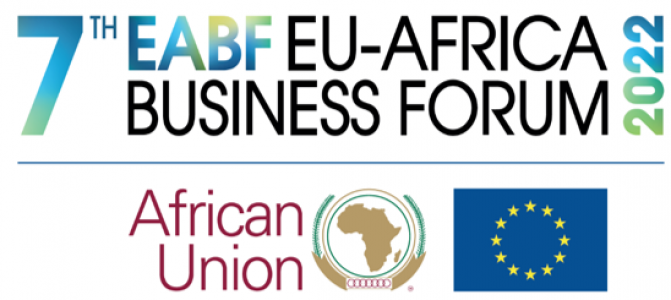
Rural youth in Africa need more and better jobs in sustainable agri-food systems. Creating decent employment and income opportunities is essential to reduce poverty, improve food security and provide a future for young people in rural areas. The seminar brought together policy makers, youth representatives, business managers and development practitioners to discuss main challenges and solutions for youth employment in sustainable agri-food systems.
Keynote Speakers
In her opening remarks Dr. Janet Edeme (African Union Commission, Department of Agriculture, Rural Development, Blue Economy and Sustainable Development) addressed the importance of empowering young entrepreneurs as well as including them in policy-making processes at the national and regional level. She presented the new continental African Agribusiness Youth Strategy (AAYS) as an important pillar to strengthen youth engagement in the agri-food sector. The AAYS was recently adopted by the Specialized Technical Committees (STC) on Agriculture, Rural Development, Water and Environment together with recommendations for implementation by AU member states. Rahmat Eyinfunjowo from Nourishing Africa emphasized the important role of young African people as key stakeholders to change agri-food systems. However, youth capacity and agency need to be built so that they can become an equal actor in policy processes and the discourse on food systems transformation – where youth should always have a seat at the table!
Panel Discussion
Dr. Bimal Kantaria from the Agriculture Sector Network (ASNET, Kenya) started off the panel discussion by highlighting the importance of a well-structured private sector representation, including youth, to engage in dialogue with the government. Later he also emphasized the significance of creating an attractive agricultural business environment for the agri-food sector. Consensus with other speakers was reached on the fact that efforts should be made to increase value addition along value chains with a focus on agro-processing, that is attracting youth with better-paid jobs, as well as to promote trade within the industry to build competitive agricultural value chains. From own experience as a young agripreneur James Odede (LAKEHUB, Kenya) added on the specific financial needs of start-ups and small businesses. Everyone could agree to the points that costs of doing business need to be reduced, e.g. in terms of taxes, transport and finance, and that delivering services such as skills training need to be improved and should be easily accessible for youth. Ariel Halpern (PROCASUR) added on the aspect of enabling youth to enter wage employment, as an alternative route supported by the IFAD Agribusiness Hubs project that is co-financed by BMZ and coordinated by Procasur in Kenya and Cameroon. He also summed up the discussion by stating that an inclusive bottom-up approach to strengthen local ecosystems is necessary to achieve sustainable rural transformation.
In his closing remarks for the session, Leonard Mizzi (European Commission, DG INTPA F3 – Sustainable Agri-Food Systems and Fisheries) acknowledged that agriculture is a difficult sector for youth to operate in. He emphasized that solutions for a food systems transformation need to build on and support home grown African solutions, that are based on smart policies at local and national level, also addressing the root causes of fragility that hamper African regional trade. To be successful, he stressed that young people in agriculture should focus on quality and value addition and be part of connective platforms with the private sector that need to be strengthened.


